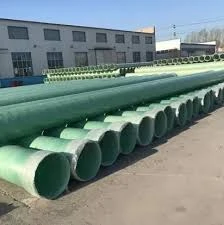
-
 Afrikaans
Afrikaans -
 Albanian
Albanian -
 Amharic
Amharic -
 Arabic
Arabic -
 Armenian
Armenian -
 Azerbaijani
Azerbaijani -
 Basque
Basque -
 Belarusian
Belarusian -
 Bengali
Bengali -
 Bosnian
Bosnian -
 Bulgarian
Bulgarian -
 Catalan
Catalan -
 Cebuano
Cebuano -
 China
China -
 China (Taiwan)
China (Taiwan) -
 Corsican
Corsican -
 Croatian
Croatian -
 Czech
Czech -
 Danish
Danish -
 Dutch
Dutch -
 English
English -
 Esperanto
Esperanto -
 Estonian
Estonian -
 Finnish
Finnish -
 French
French -
 Frisian
Frisian -
 Galician
Galician -
 Georgian
Georgian -
 German
German -
 Greek
Greek -
 Gujarati
Gujarati -
 Haitian Creole
Haitian Creole -
 hausa
hausa -
 hawaiian
hawaiian -
 Hebrew
Hebrew -
 Hindi
Hindi -
 Miao
Miao -
 Hungarian
Hungarian -
 Icelandic
Icelandic -
 igbo
igbo -
 Indonesian
Indonesian -
 irish
irish -
 Italian
Italian -
 Japanese
Japanese -
 Javanese
Javanese -
 Kannada
Kannada -
 kazakh
kazakh -
 Khmer
Khmer -
 Rwandese
Rwandese -
 Korean
Korean -
 Kurdish
Kurdish -
 Kyrgyz
Kyrgyz -
 Lao
Lao -
 Latin
Latin -
 Latvian
Latvian -
 Lithuanian
Lithuanian -
 Luxembourgish
Luxembourgish -
 Macedonian
Macedonian -
 Malgashi
Malgashi -
 Malay
Malay -
 Malayalam
Malayalam -
 Maltese
Maltese -
 Maori
Maori -
 Marathi
Marathi -
 Mongolian
Mongolian -
 Myanmar
Myanmar -
 Nepali
Nepali -
 Norwegian
Norwegian -
 Norwegian
Norwegian -
 Occitan
Occitan -
 Pashto
Pashto -
 Persian
Persian -
 Polish
Polish -
 Portuguese
Portuguese -
 Punjabi
Punjabi -
 Romanian
Romanian -
 Russian
Russian -
 Samoan
Samoan -
 Scottish Gaelic
Scottish Gaelic -
 Serbian
Serbian -
 Sesotho
Sesotho -
 Shona
Shona -
 Sindhi
Sindhi -
 Sinhala
Sinhala -
 Slovak
Slovak -
 Slovenian
Slovenian -
 Somali
Somali -
 Spanish
Spanish -
 Sundanese
Sundanese -
 Swahili
Swahili -
 Swedish
Swedish -
 Tagalog
Tagalog -
 Tajik
Tajik -
 Tamil
Tamil -
 Tatar
Tatar -
 Telugu
Telugu -
 Thai
Thai -
 Turkish
Turkish -
 Turkmen
Turkmen -
 Ukrainian
Ukrainian -
 Urdu
Urdu -
 Uighur
Uighur -
 Uzbek
Uzbek -
 Vietnamese
Vietnamese -
 Welsh
Welsh -
 Bantu
Bantu -
 Yiddish
Yiddish -
 Yoruba
Yoruba -
 Zulu
Zulu
Exploring the Benefits and Features of Advanced GRP Scrubber Technology for Environmental Sustainability
The Importance of GRP Scrubbers in Modern Industry
In the increasingly regulated landscape of environmental protection, industries are facing mounting pressure to reduce their emissions and adopt cleaner technologies. One significant innovation that has emerged is the GRP scrubber, a technology designed to remove pollutants from gas streams in various industrial processes. The acronym GRP stands for Glass Reinforced Plastic, a material known for its strength, durability, and corrosion resistance. These attributes make GRP scrubbers an ideal choice for numerous applications, including power generation, chemical processing, and wastewater treatment.
What is a GRP Scrubber?
A GRP scrubber is a pollution control device that uses a scrubbing liquid to cleanse exhaust gases of harmful contaminants. The design of these scrubbers typically involves a vertical or horizontal cylindrical tank where the raw gas enters and comes into contact with the scrubbing solution. This interaction allows for the absorption of harmful substances, such as sulfur dioxide, nitrogen oxides, and volatile organic compounds (VOCs). The cleaned gas is then released into the atmosphere, meeting regulatory standards and minimizing environmental impact.
Benefits of GRP Scrubbers
1. Corrosion Resistance One of the primary advantages of GRP scrubbers is their resistance to corrosion. Traditional scrubbers made from metal can deteriorate quickly when exposed to aggressive chemicals and gases. GRP, however, can withstand harsh conditions, ensuring longevity and reducing maintenance costs.
grp scrubber

2. Lightweight and Durable GRP is significantly lighter than traditional materials like stainless steel, making it easier to transport and install. This lightweight nature also allows for more flexible designs and installations in space-constrained environments without compromising structural integrity.
3. Cost-Effective Solution While the initial investment in GRP scrubbers might be higher compared to some other types of scrubbers, their long lifespan and low maintenance requirements can lead to significant cost savings over time. Additionally, their efficiency in capturing pollutants can help industries avoid hefty fines associated with non-compliance to environmental regulations.
4. Versatility GRP scrubbers can be designed to accommodate a wide range of applications, from removing acidic gases in chemical plants to controlling emissions in power plants. Their adaptability makes them suitable for various industries, including oil and gas, pharmaceuticals, food processing, and more.
5. Environmental Compliance As regulations around emissions become stricter, GRP scrubbers provide an essential means for industries to comply with environmental standards. By effectively reducing the level of harmful emissions, companies can demonstrate their commitment to sustainability and corporate responsibility.
Conclusion
As the world moves toward greener technologies and stricter environmental regulations, the role of GRP scrubbers in industrial applications is becoming increasingly vital. Their unique properties—such as corrosion resistance, durability, cost-effectiveness, and versatility—position them as a reliable option for industries looking to minimize their environmental footprint. By investing in cutting-edge technologies like GRP scrubbers, companies not only comply with regulations but also contribute to a cleaner, safer planet for future generations. It is clear that GRP scrubbers will play a critical role in shaping the sustainable practices of tomorrow's industries. As the demand for cleaner air grows, so will the innovations that help achieve that goal, with GRP scrubbers leading the charge in the fight against industrial pollution.
Latest news
-
High-Quality Fiberglass Car Bodies Durable GRP Car & Boat Body SolutionsNewsJul.08,2025
-
High-Quality Fiberglass Dual Lamination Product Manufacturer Durable FRP & GRP Dual Lamination SolutionsNewsJul.08,2025
-
Rectangular Tank with Dimensions for GRP Calculation Custom Fiberglass GRP Rectangular TanksNewsJul.07,2025
-
High-Quality Fiberglass Weir Custom FRP Weir & Fiberglass Tanks ManufacturerNewsJul.07,2025
-
CPVC FRP Pipe A Reliable Choice for Industrial Applications High Strength & Corrosion ResistanceNewsJul.07,2025
-
Fiberglass Scrubber for Effective Cleaning and Stain Removal – Superior Performance in Various ApplicationsNewsJul.06,2025









